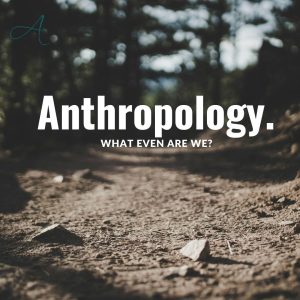“What even are we?”
The question is one that, as a former professor of mine once said, “is shallow enough that a toddler can wade in it but deep enough for a scholar to drown.” But it is not just the philosopher or the toddler that has the question set before him. It is a question that is cast across the net of culture, pop-culture, politics, and healthcare. Of course, if you ask a stranger on an airplane “What are you?” you’re quite likely to get a blank stare and a disgruntled murmur for asking such a silly question. But if you ask this in another way—say, “What do you think about abortion, slavery, gender equality, or euthanasia?”—you’re likely to get an earful of passionate and value laden responses to the question which assumes, at the very end of the day, it’s not an irrelevant or silly question at all! We have a great deal to say about the identity and value of a person!
Rob Arner’s wonderful and informative book Consistently Pro-Life has a helpful appendix documenting the language of dehumanizing oppression in vulnerable populations ranging from African Americans to Women to Soviet Enemies and the Unborn. As Arner notes, almost every minority group and demographic over the past two hundred years of Western society has been the subject of dehumanization (or de-personalization) at some level. The language we have used to de-humanize and depersonalize has run the gamut of “deficient human” to “animal” to “waste product” and “nonperson.” For example, in the mid-twentieth century Nazi propaganda (which many “intellectuals” supported) described European Jews simply as “transit material.” Or, in the mid-19th century, the Virginia Supreme Court stated, “In the eyes of the law…the slave is not a person.” Or an early 20th century press coverage described Native Americans as “anthropological specimens.” Or, a twentieth century British voting rights case stated that “The statutory word ‘person’ did not in these circumstances include women.” Or…well, we could go on and on! You show me a people group, and I can probably show you the dehumanizing and depersonalizing language used to justify oppression.
Of course, the language used above towards minority groups to answer the question “What are they?” could be and has been equally applied to the unborn. Political Scientist Rosalind Petchesky described the fetus as “a parasite.” The ethical philosopher Joseph Fletcher labeled an unwanted pregnancy as “a venereal disease.” Even newborns have been denied personhood by humanist philosophers with some even going so far as to deny that to kill newborns and especially newborns with disabilities should not be considered immoral (an act which, for the record, was common in ancient Rome and which the early Christians helped curb through radical opposition to both abortion and infanticide).
Ultimately, whether we’re talking about slaves (status), women (gender), disabled individuals (ability), the elderly (dependency), certain national groups (ethnicities), or the unborn (development), all our statements denying personhood presume to have an answer in the negative about the question stated above: Whatever they are, they are not human!
Anthropology is the technical term for ‘the study of man’ or ‘the study of humanity.’ It ultimately asks some deep and complex questions about the nature of humanity. What does it mean to be human? Is humanity and personhood the same thing? When do we become a human or a person? What separates humanity from other life? Is there anything of value in being human? But perhaps the most important question anthropology asks about anything is this: “What even are we?”
How we answer the question of “what even are we” goes back to our initial post on creation (see here) and the distinction between mere substance, more than mere substance, and more than more than mere substance. If we are to suppose that man is merely a substance or simply “more than mere substance” because of our mental and physical abilities, we will of course conclude that mankind’s value and right to life can only be measured by our own desire to have or use someone. And this answer, surely, leads to a great deal of inconsistencies, confusions, and slippery slopes. It says that a human being’s value is entirely dependent on another person’s desire for that human being to even be a human being. If you can say “I don’t want it to be a human being” it becomes really easy to say “It no longer has value.”
A few days ago, I saw a news article stating that in the UK a couple who have had a miscarriage can apply for a “baby loss certificate”. The BBC blurb stated, “Parents in England who have lost a pregnancy before 24 weeks can now apply for a certificate to recognize the loss of their baby.” As wonderful as this news is (and it really is!), it showcases the contradiction of our language! In the case of a wanted pregnancy, the unborn is a “baby” and that the couple who have lost a pregnancy are “parents”. But culture flips the script if the unborn is not wanted and refers to the unborn as a “fetus”, “non-human”, or “a potential human” while referring to the self-induced miscarriage (i.e. abortion) as a healthcare procedure instead of a parental loss. Furthermore, there is generally no language about being a “parent.” The difference in the language of “baby and loss” with “fetus and procedure” is merely the difference in ascribing value based on the difference of “wanted” vs. “unwanted.” If wanted, a miscarriage is the tragic loss of a baby. If it is not wanted, and an abortion is procured, it is the loss of something that is not a baby. The contradiction should be obvious.
Ultimately, wantedness is a poor foundation for deciding whether someone is a human person. This leads us down the never-ending rabbit hole of what I call Utilitarian Anthropology where “what you are depends on what I want you to be.” For the Christian, however, the qualifier can never be wantedness or utility. Rather, it must be Endowed Anthropology: the non-subjective, non-utilitarian, non-reversable, non-changeable, non-relative, objective reality of inherent human personhood.
Endowed Anthropology is the sort of anthropology by which we claim that every human person of whatever age, ethnicity, gender, status, (dis)ability, location, level of dependency, class, etc. is entirely and completely equal with the one who is at the very top of the social hierarchy. Why? For the simple reason that who we are is not a matter of our own desire but of the desire of the one who created us.
A few weeks ago, we had a client come through our doors with her significant other. They had called our center and were, at the time, highly considering abortion and were actively looking to acquire abortion pills. They consented to a consultation, however, and met with our client advocates to talk through the emotional, physical, and practical concerns related to a surprise pregnancy. At one point during the conversation, the father began flipping through a fetal development magazine. Our male counselor looked on, noticing his brow continuously shifting as he began to contemplate the significance of what he was reading. After a few minutes he paused, lifted his head and looked at our counselor and said in the most redneck, backcountry drawl, “Do you mean to tell me that this here thing is alive?!” Our counselor nodded, consenting to the new realization. “Well that’s not what I thought coming in here. Doggone, she needs to see this! This changes everything!”
Of course, there was only one thing that changed in those few minutes and it wasn’t the nature of the human personhood of the unborn. Wantedness had nothing to do with whether that unborn, several week-old fetus was, in fact, a pre-born person. It was merely the recognition that this fetus is a human person. And this, of course, is the case with every vulnerable population group throughout history that has, at one point or another, been told their personhood is subject to somebody else’s desire.
So, what even are we?
Despite our attempts through history to qualify, de-humanize, and de-personalize those that are not like us, we cannot erase what God himself has said we are: human persons, created and endowed by God with inherent worth and value. And if that is true, the beautiful thing is that no one can take that away.

